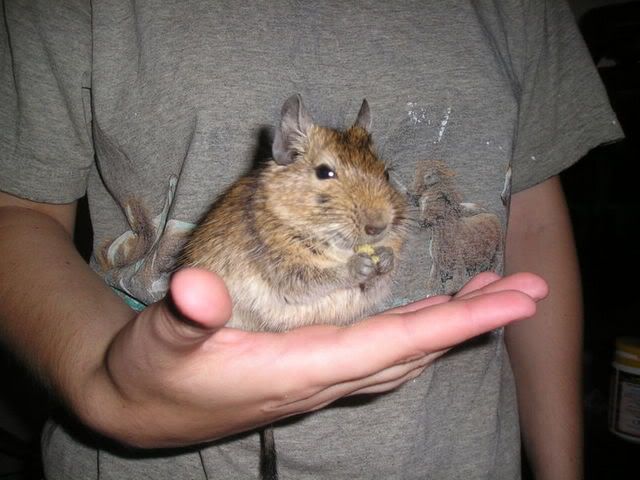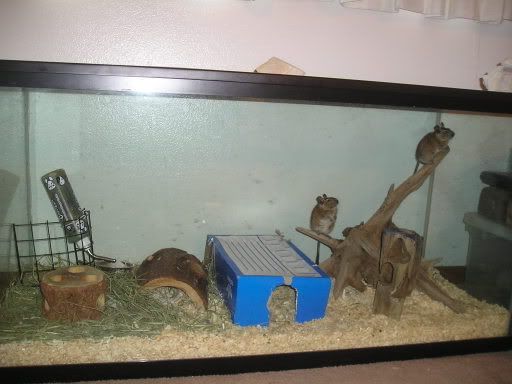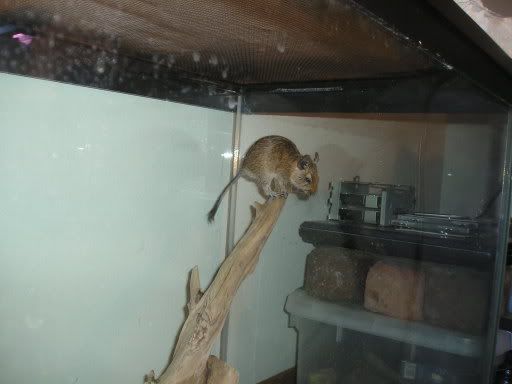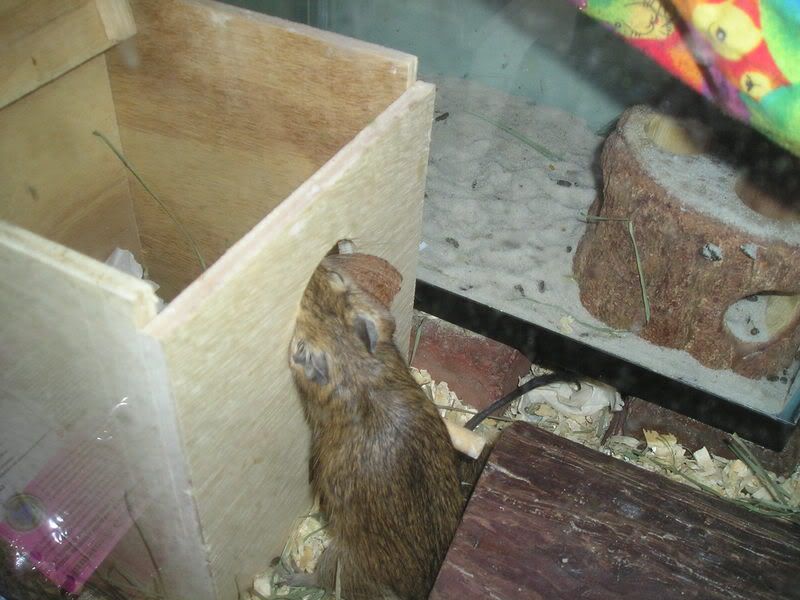Just wondering if anyone else here keeps degus ?
We currently have 9.
3 males in one cage.
4 females in another cage.
2 in another - a bonded pair.
All are getting up there in years though - I think the youngest is 4, but I'm not 100% sure as we don't have birth dates, just general guesses from previous owners.
We currently have 9.
3 males in one cage.
4 females in another cage.
2 in another - a bonded pair.
All are getting up there in years though - I think the youngest is 4, but I'm not 100% sure as we don't have birth dates, just general guesses from previous owners.







